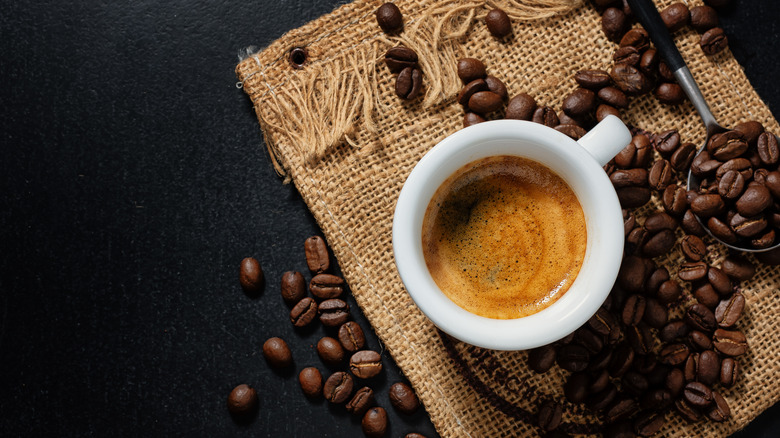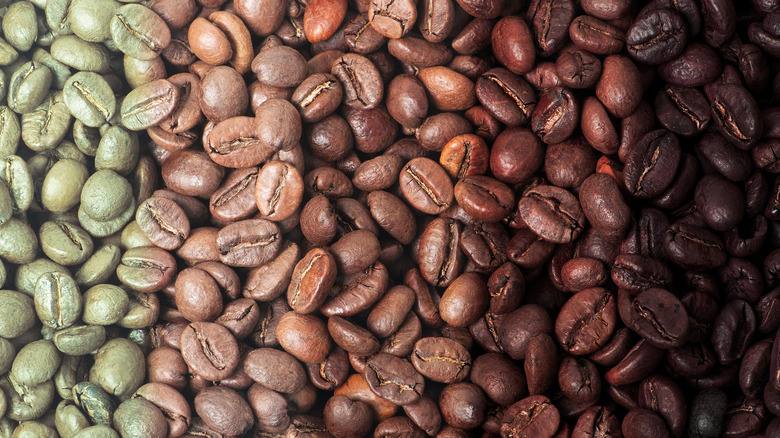Is It Worth It To Roast Your Own Coffee Beans?
Here's the thing about brewing coffee: there's always room for improvement. Ask any coffee connoisseur and they'll always have a trick to make a cup of coffee taste even better. A few café owners, for example, tell Insider that buying whole coffee beans instead of pre-ground beans makes a whole lot of difference. A coffee grinder, they say, is a piece of equipment that everyone should consider investing in. Some suggest taking into consideration the quality of both coffee beans and the water used to brew them whereas others insist that dark and light roast beans aren't coffee jargon that you can ignore.
For some coffee experts, roasting your own coffee beans is where the key to an excellent cup of Joe lies. The biggest advantage of roasting coffee at home is its flavor. According to the National Coffee Association, coffee beans start soft and green. It is only when they are roasted that the beans darken and harden, and their flavor and aroma are unlocked. But once the green coffee beans are roasted, the clock essentially starts ticking.
While unroasted green coffee beans can be stored for a very long time, they begin to lose flavor pretty quickly after they are roasted. Roasted coffee is optimal only for a month and storebought coffee is often roasted weeks in advance, meaning you're not getting the bang for your buck in terms of flavor (via Bean Poet). Green beans, on the other hand, can be stored for up to a year without a dip in their quality.
Here's how you can roast coffee at home
Once you have a big batch of green coffee beans, it's easy to roast them in small batches at home to ensure that the beans are always at the peak of their flavor. According to Home Grounds, there are multiple methods of roasting coffee beans at home, each with pros and cons to consider.
Beans can be roasted in a pan or an oven, which may be the easiest method but isn't known to give the most even roast to the beans. Popcorn machines are another popular method but since the machines aren't built to roast coffee, they can easily be damaged. If you do have money and kitchen real estate to spare, there's always the option of buying an at-home coffee roaster too.
Regardless of the method you choose, roasting your own coffee also gives you control over how long you want to roast them. If you remove the beans right before they begin to crack, the light-roasted beans will have comparatively more caffeine and a more intricate flavor (via Coffee Affection). When allowed to roast a little longer after they first crack, you'll have a batch of medium-roasted beans with a balanced flavor profile. Beans roasted until they crack twice are dark roasts with lesser caffeine and a deeper flavor.
So while it may not be necessary to roast your own coffee, it is certainly worth the extra time and effort if you value the freshness and flavor of your beans.

